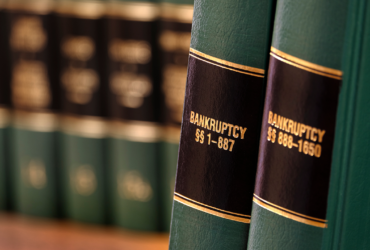Bankruptcy is an area of law that enables individual debtors, by filing a petition for bankruptcy in federal court, to be released from the legal obligation of repaying their debts to most types of creditors.
Filing for bankruptcy is a debtor’s most extreme remedy. While filing for bankruptcy protection can be an opportunity to rebuild your financial life and start fresh, it also has considerable long-term consequences on your ability to obtain credit.
The decision of whether to file for bankruptcy should not be made without first carefully considering the short and long-term benefits and drawbacks of such a decision.
Two Types of Debt – Secured and Unsecured
Before deciding on whether to file for bankruptcy, it is essential you first learn the difference between a secured versus unsecured debt.
To assist you in this process, you will likely benefit by consulting with an approved credit counselor before making your final decision.
Credit Counseling
Here are the issues you should cover with your credit counselor:
- Whether you are employed now, and whether you anticipate earning a higher income in the future based on your trade or profession?
- Whether your debts are secured or unsecured obligations.
- The type and character of your personal property. For example, can any of your personal property be characterized as tools of your trade?
- Determining the risk of losing your home, car, or other essential assets.
- The number of years it will take to restore your credit after bankruptcy.
- Are there less severe debt relief options available without having to file for bankruptcy?
Note: Credit counselors are not lawyers. It is strongly advised you also consult with an experienced bankruptcy lawyer before making any major financial decision.
Bankruptcy Lawyers Answer The Following Questions
How many times can I file for bankruptcy?
If you have filed for bankruptcy in the past, the issue can get quite complicated, which is why you should address these issues with an experienced bankruptcy lawyer.
As of August 2022, there are no limits on how many times you can file for bankruptcy. However, under certain circumstances, especially under a Chapter 7 filing, there can be a waiting period of eight years.
However, the waiting periods can be much shorter depending on the discharge date of your previous bankruptcy filing and other factors your attorney may discuss with you.
Is filing for bankruptcy my best option?
Some people rush into bankruptcy if they are facing foreclosure. Most experienced bankruptcy lawyers understand how banks work and with whom to speak concerning negotiating an acceptable modification to your existing mortgage, such as extending the term of the loan and lowering your monthly payments.
Your lawyer might also be able to assist you in negotiating a forbearance of your mortgage payments to give you a reasonable amount of time to look for additional sources of income.
Do I have the type and level of debt to qualify for bankruptcy?
Whether you have enough debt to file for bankruptcy is not always a simple question. There are many personal, financial, and critical legal factors to consider, and bankruptcy law is a highly complex area to navigate on your own. If you can, it is always recommended that you retain the services of a qualified and experienced bankruptcy attorney.
Public Policy Behind Bankruptcy
The purpose of bankruptcy is to unburden debtors from being financially overwhelmed by debt and to enable them to start fresh. However, bankruptcy judges are sensitive to those who abuse the right to bankruptcy, and courts have been known to dismiss cases when it is believed the debtor is in bad faith. Consider asking your lawyer if you are eligible for bankruptcy protection under what is called the means test.
Consumer Bankruptcy
Once you have concluded that filing for bankruptcy is your best course of action, this section covers most of the basic legal principles governing consumer bankruptcy law. You will find informative articles on the legal distinctions between Chapters 7 and Chapter 13 of the U.S. Bankruptcy Code.
The Automatic Stay
Once the debtor files the bankruptcy petition, it automatically and immediately prohibits creditors from taking any collection action against the debtor or their property through legal process or any means of communication whatsoever, including harassment and intimidation of the debtor.
Court-Appointed Trustee
Upon filing the bankruptcy petition, the court will appoint a trustee to manage the case. The trustee is responsible for managing the bankruptcy estate, which is held in trust for the benefit of the creditors.
Generally, depending on the type of bankruptcy you file (see below), certain types and classifications of the debtor’s property may be taken and sold by the trustee and are divided and distributed to your creditors.
For example, under Chapter 7, the trustee is charged with the duties of liquidating all of the debtor’s nonexempt property and distributing the proceeds for the benefit of the creditors. While under Chapter 13, the trustee will allow the debtor to keep all that you own, so long as you pay the equity value of the nonexempt property in your repayment plan.
Consumer Bankruptcy Chapters 7 and 13
Chapter 7 bankruptcies are designed for people who have little to no assets and essentially no disposable income. Chapter 13 bankruptcies, also called wage earner plans, are for debtors with a regular income stream and who possess a higher degree of assets but need additional time and conditions to pay off their debts with their creditors.
Chapter 7
Bankruptcy under Chapter 7 is a straight liquidation of all unsecured debt. This type of case is commonly referred to as a no-asset bankruptcy. Unsecured debt includes credit cards, medical bills, club dues, and yoga memberships.
Debts that are not secured by collateral. In most cases, the trustee will not only administer your case but will also determine and approve your exemptions.
Typically, under Chapter 7, it will take approximately five months before you can receive a final discharge of your debts.
Types of Exemptions
Exemptions allow the debtor to keep certain assets after the bankruptcy is over. This means the debtor must carefully select their exemptions to conform to the debtor’s specific financial circumstances and needs.
Exemptions vary from state to state.
States differ in their public policy regarding allowing or rejecting certain types of exemptions. For example, many states believe that a debtor should not be legally obligated to surrender certain property types, such as tools-of-the-trade, health aids, life insurance, and social security benefits.
The Chapter 7 bankruptcy trustee evaluates the character and value of a debtor’s property to determine if any assets qualify under an exemption under federal or state law.
Again, the public policy it’s important to stress the public policy behind bankruptcy is to give the debtor a fresh start, not decimate the debtor and render the person destitute and homeless. Accordingly, states can determine how much a debtor can keep certain types of property. For example, Texas has been known to be a generous and debtor-friendly state. Others, not so much.
Homestead Exemption
Under Chapter 7, the types of homestead exemptions can differ substantially between states regarding the exemption’s value range. For example, some states allow a debtor to protect some of their home equity, while others will enable the debtor to protect all their equity in their home.
However, you must understand that since bankruptcy only protects against unsecured creditors, it does not prevent a bank that holds a secured mortgage from foreclosing on the home.
Vehicle Exemption
The value range of vehicle exemptions varies by state.
Under Chapter 7, the vehicle exemption protects the amount of equity you have in your car, truck, van, motorcycle, or van. Notwithstanding, if the state exemption amount does not equal to the earned equity in your vehicle, the trustee can sell your car and put the remaining proceeds into the estate for the benefit of the creditors.
Wild Card Exemption
Under many state laws, you can stack certain types of property under the Wild Card exemption. For example, if your state provides an overall $5,000 Wild Card exemption for personal property, you can combine your nonexempt property and protect it from liquidation.
Under some states, including the federal system, the Wild Card exemption can apply to any type of property – exempt and nonexempt.
In California, for example, The Real Property Exemption as of 2019 is $29,2719 so long as it is your primary residence. Under the Wild Card exemption (C.C.P. Section 703.140(b)(1)), you can exempt $1,280 plus any unused portion of your real property exemption.
So, if a debtor does not claim an exemption in his primary residence, the debtor still has an exemption they can claim in any other asset(s).
When Chapter 7 Converts into Chapter 13
If you are a debtor with assets of sufficient value or make a significant amount of money, the chances are the court will convert your Chapter 7 into a Chapter 13 bankruptcy plan.
Chapter 13
Chapter 13 is more of a structured reorganization of your debts than a straight liquidation. A Chapter 13 is effectively a repayment plan set up in favor of your creditors.
Your final discharge under a Chapter 13 plan happens only when you have completed your repayment plan to your creditors.
Usually, unsecured creditors are willing to take substantially less than what is owed since the goal is to pay back as many creditors as possible under the plan.






